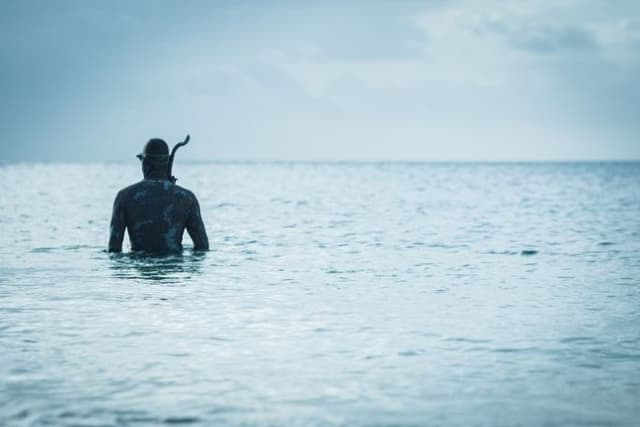
Blue - Connecting to the Ocean
Lesson1 of 10 in this unit
Year 7 - 8EnglishLearning through filmEnvironmentalBiodiversityConservationOceansWater
Summary
Lesson Guides and Printables
Lesson Plan
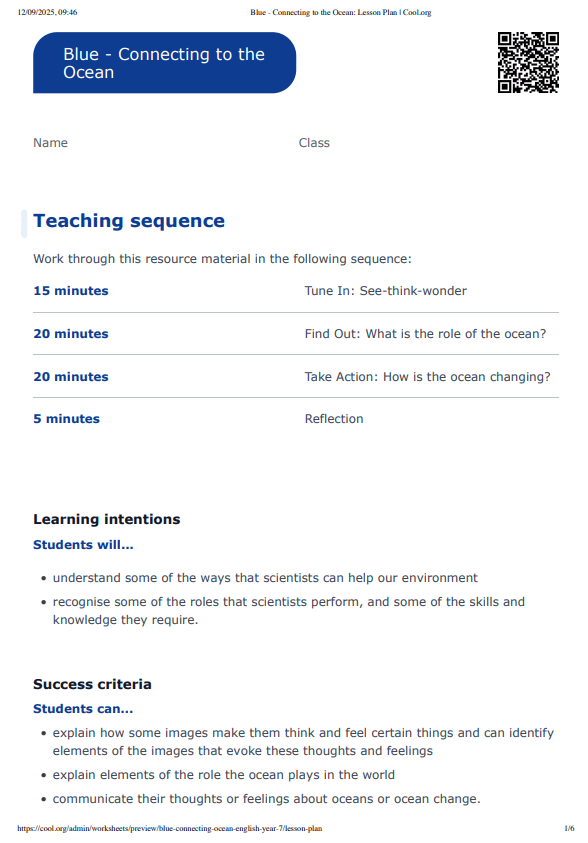
Teacher Content Info
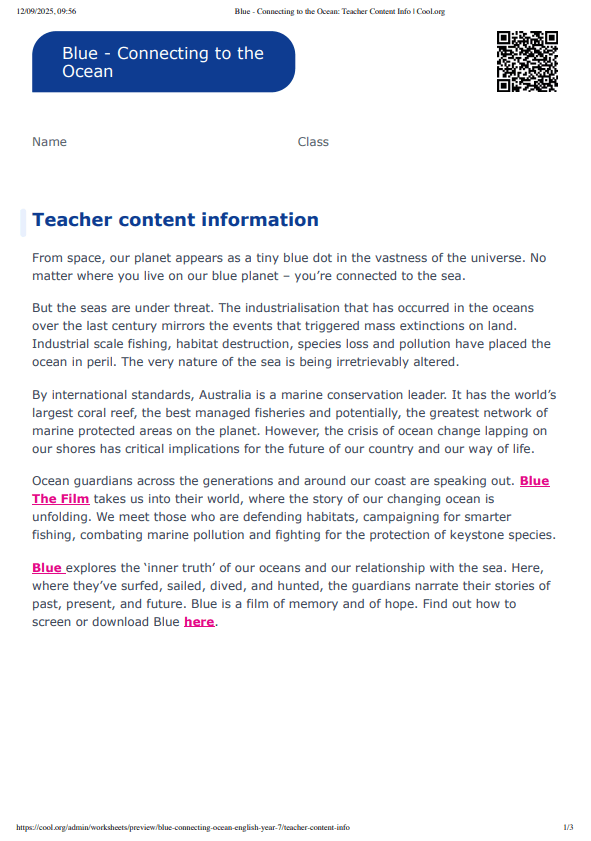
Student Worksheet
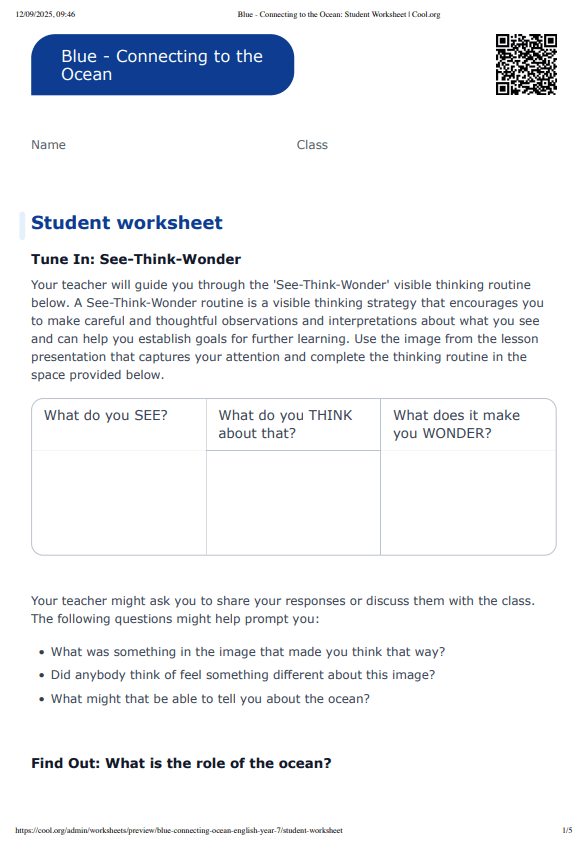
Visual Explainer
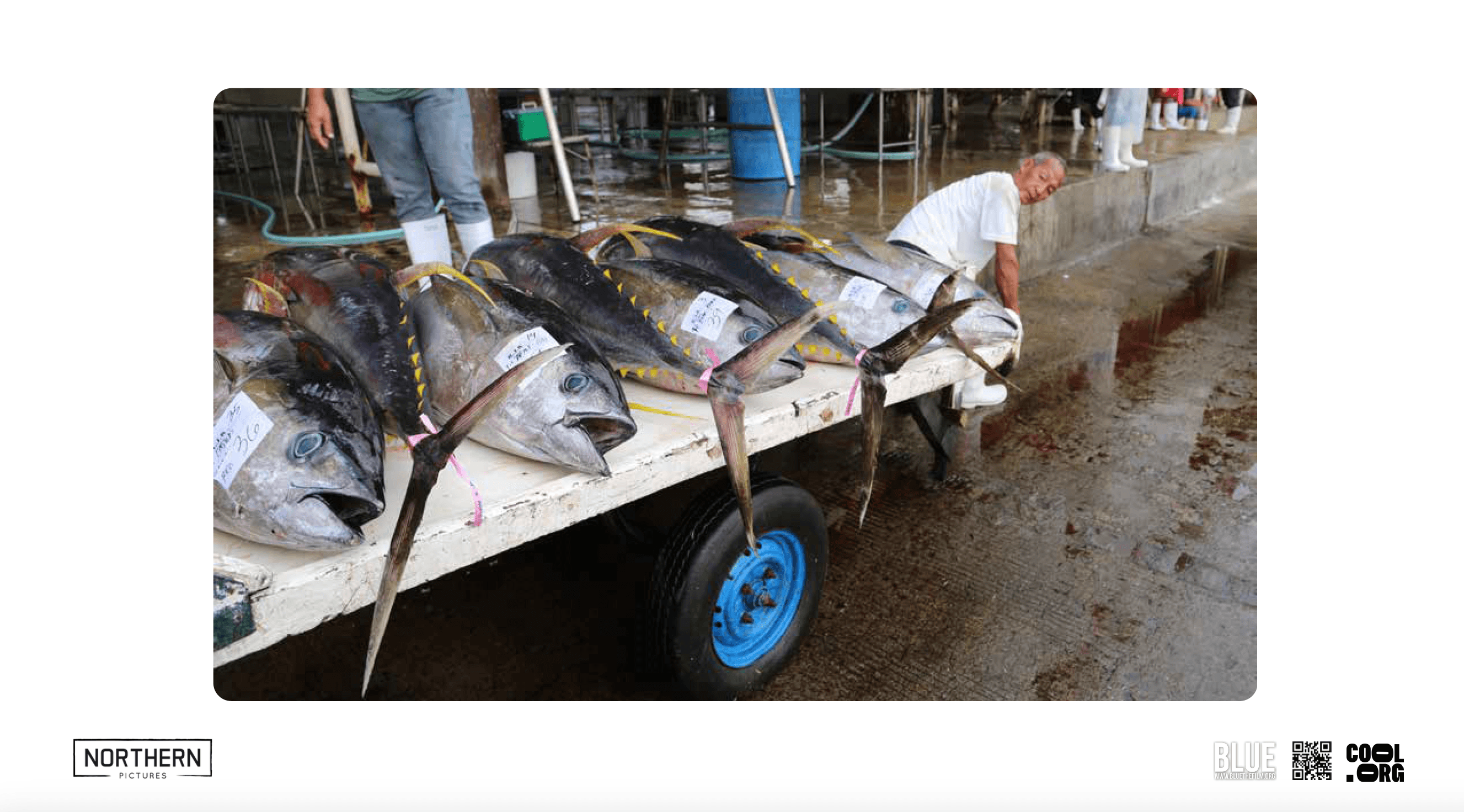

Lesson Plan

Teacher Content Info

Student Worksheet

Visual Explainer
